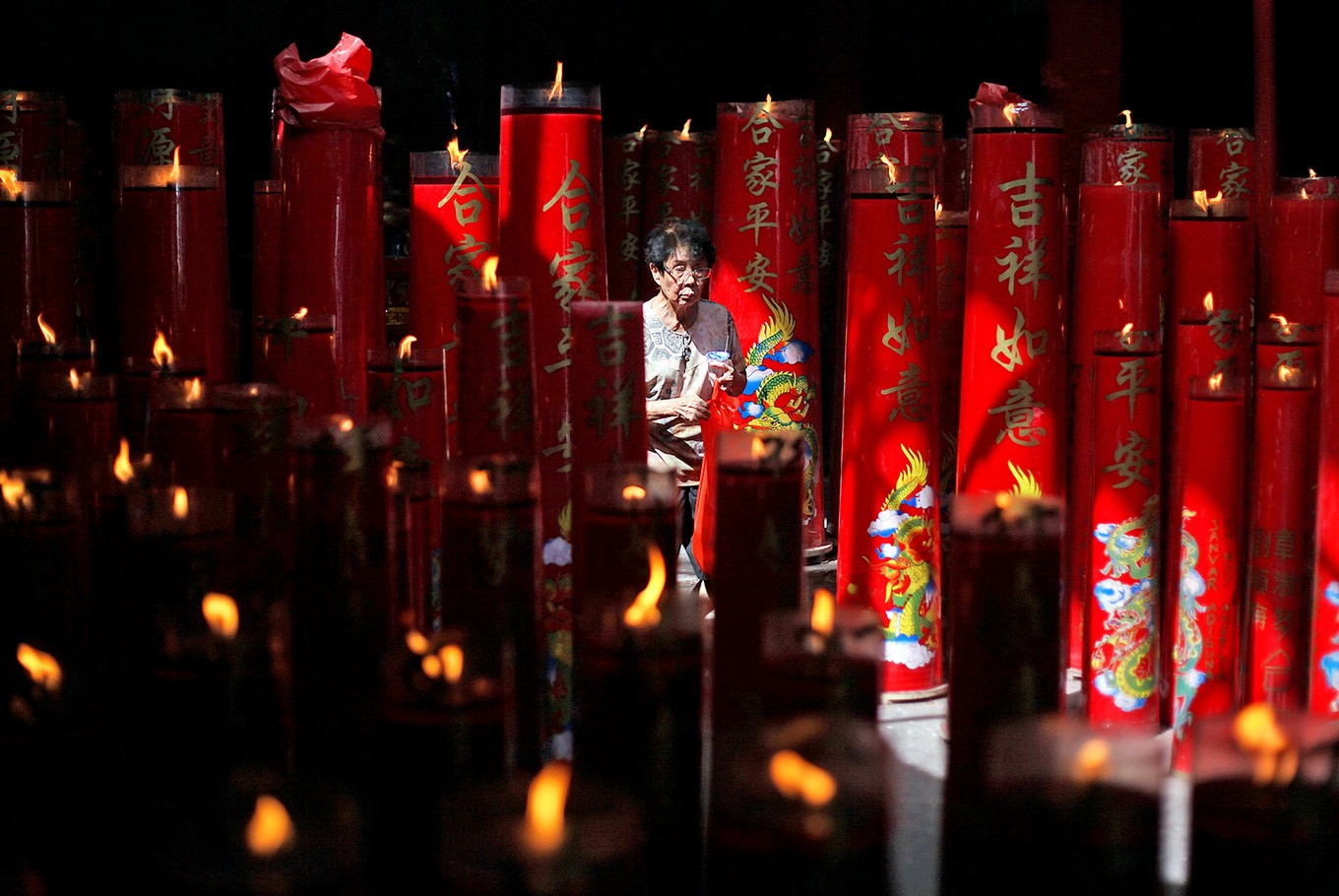Popular Reads
Top Results
Can't find what you're looking for?
View all search resultsPopular Reads
Top Results
Can't find what you're looking for?
View all search resultsChinese-Indonesian politicians up against racism
At the House of Representatives, Chinese-Indonesians are represented by only nine lawmakers, six of whom are from Jakarta, out of the total of 560 members.
Change text size
Gift Premium Articles
to Anyone
P
oliticians of Chinese descent are attempting to woo voters in Chinese enclaves, communities and the broader public in Jakarta to secure seats as legislators even as racist sentiments have recently been rising.
Data from Statistics Indonesia recorded that in 2010 there were only 623,372 people of Chinese descent in Jakarta’s 9.6 million population.
The small number makes them a minority in Jakarta’s politics and that is reflected in the low number of Chinese-Indonesians sitting on the City Council: Only four out of 106 councillors.
At the House of Representatives, Chinese-Indonesians are represented by only nine lawmakers, six of whom are from Jakarta, out of the total of 560 members.
Six Chinese-Indonesians are running for Jakarta City Council seats in the April 17 elections and 20 for the House — 15 of whom are from Jakarta.
Politicians of Chinese descent tend to run in Chinese enclaves in the city, such as in North and West Jakarta municipalities, where Chinese communities are more prominent than in other areas of the city.
Councillor Gani Suwondo of the Indonesian Democratic Party of Struggle (PDI-P), who is seeking reelection, is one such candidate. He is running in the Jakarta III electoral district, which covers the areas of Penjaringan, Pademangan and Tanjung Priok in North Jakarta. Having settled in Teluk Gong in North Jakarta in 1985 — where a sizable Chinese community exists — Gani said his reason for running for office in that district was because the area was familiar to him.
“I’m already close to my constituents in electoral district III. I can’t possibly move because I’ve won there previously,” Gani told The Jakarta Post on Tuesday.
He would not deny that fellow Chinese-Indonesians tend to vote for him, although he said he had always tried to appeal to other groups, despite ethnic and religious differences.
In an interview with the Post last July, Gani said the racist sentiments expressed during the 2017 Jakarta gubernatorial election had worsened the situation and he expected to face similar issues this year.
At that time, racist sentiments flourished as the divisive terms pribumi (indigenous) and non-pribumi were tossed about to discourage voters from supporting then-governor Basuki “Ahok” Tjahaja Purnama who is of Chinese ethnicity.
Gani downplayed the effect, but he admitted that the negative campaign had been used to win the election.
Karna Brata Lesmana — who is running for a House seat in the Jakarta III electoral district covering the Thousand Islands regency, North Jakarta and West Jakarta — also said he relied on Chinese-Indonesians voters, adding that Ahok’s experience as a politician of Chinese descent had inspired him.
Karna from the NasDem Party — which supported Ahok during his final campaign — also wants to woo voters from all groups of society. He had previously run for the Indonesian Justice and Unity Party in 2014, but lost. “The Jakarta III electoral district already had pockets of significant voters, so it will be easier for me to run for this district again,” he said.
Karna is one of the few politicians of Chinese descent to run for a party other than the PDI-P, which has long been viewed as the stronghold of Chinese-Indonesian voters and politicians.
Gani acknowledged that the reason behind his support for the PDI-P was that Chinese-Indonesians had felt the party welcomed them as equals.
Karna added that the PDI-P was already a large, strong party, so he wanted to support the incumbent from another party, NasDem.
PDI-P Jakarta chapter head Adi Wijaya said the party was open to all Indonesians running for office, despite a perception that people of Chinese descent would only vote for people of the same ethnicity and run for that party.
He told the Post that the party welcomed all candidates who “want to serve the citizens and not just their own social status and enrich themselves, be they of Chinese descent or not. All lawmakers must do so”.
Adi said he would welcome Chinese-Indonesian politicians who moved from one party to another, dismissing concerns that this would diminish the PDI-P’s share of Chinese-Indonesian votes.
Meanwhile, many voters of Chinese descent still seemed to put ideology ahead of ethnicity when choosing lawmakers.
Pluit resident Denny Howman said as long as a candidate was competent and had a good track record, ethnicity would not be the deciding factor.
“Even if I personally knew the candidates or if they were relatives, if they were not competent for the job I would reconsider before voting for them,” the 30-year-old graphic designer said.
Sawah Besar resident Louis Cythia Angels already had a plan to vote this year after checking on the candidates through social media and the news.
“I always try to vote and avoid golput (not voting),” the 33-year-old Mandarin teacher said.
This article was originally published in The Jakarta Post's print edition on Jan. 23, 2019, with the title "Minority politicians up against racism".











